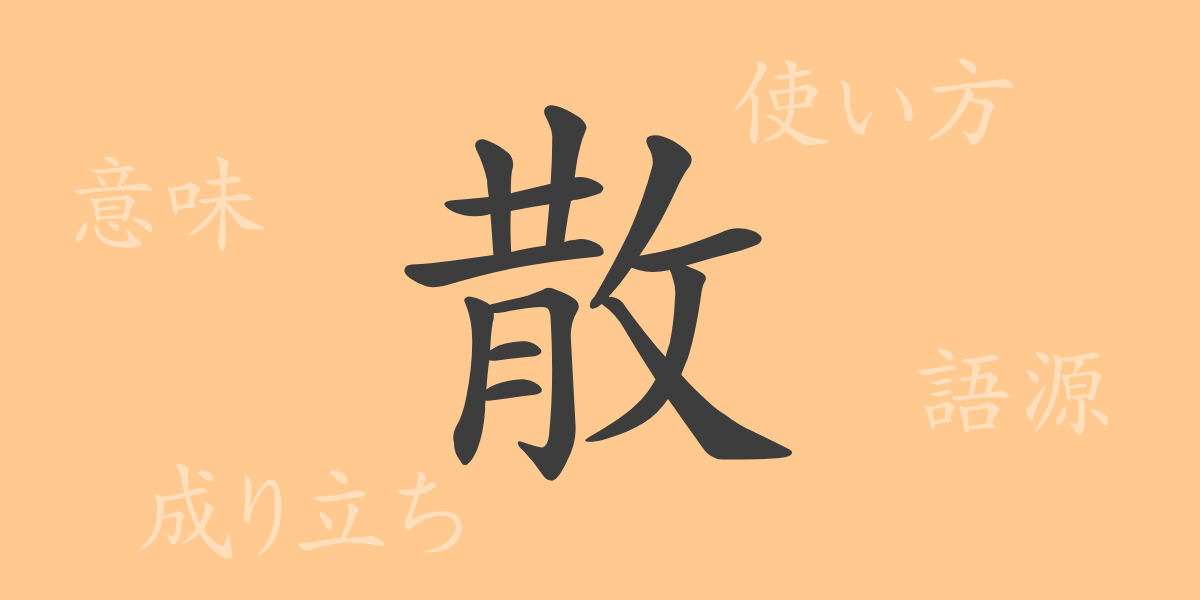The beauty of the Japanese language is reflected in its delicate characters. One of the common kanji, “散(さん)” (san), enables diverse expressions in our daily conversations and literature. This article explores the origin, meaning, usage, pronunciation, and various idioms and phrases associated with “散(さん).” For those seeking a deeper understanding of Japanese, let’s take a stroll through the world of “散(さん).”
Origin of 散(さん)
The kanji “散(さん)” originated in ancient China. Initially derived from a pictogram representing “scattering fire,” it evolved to mean “to scatter” or “to disperse” over time. This character visually depicts the state of things spreading out from a center or becoming disordered.
Meaning and Usage of 散(さん)
“散(さん)” has meanings such as “to scatter,” “to spread,” and “to break up.” It can also refer to a state of restlessness or the dispersion of focus. It is used in various grammatical forms, including nouns, verbs, and adjectives. For example, “散歩(さんぽ)” (sanpo) means taking a leisurely walk, and “散策(さんさく)” (sansaku) refers to strolling while enjoying the scenery.
Reading, Stroke Count, and Radical of 散(さん)
“散(さん)” has several readings in Japanese.
- Reading: The on’yomi (音読み) reading is “サン(さん)” (san), and the kun’yomi (訓読み) readings include “ちる(ちる)” (chiru), “ちらす(ちらす)” (chirasu), “ちらかす(ちらかす)” (chirakasu), and “ちらかる(ちらかる)” (chirakaru).
- Stroke count: “散(さん)” has a total of 12 strokes.
- Radical: The radical is 攴(ぶんづくり) (bunzukuri).
Idioms, Phrases, and Proverbs Using 散(さん) and Their Meanings
There are many idioms, phrases, and proverbs containing “散(さん)” in Japanese. Here are some examples:
- 散々(さんざん) (sanzan) – A state of being extremely bad or having a terrible experience.
- 散歩(さんぽ) (sanpo) – Walking for leisure or exercise.
- 散財(さんざい) (sanzai) – Squandering money.
- 花散らし(はなちらし) (hanachirashi) – Refers to the scattering of cherry blossoms at the end of spring, symbolizing the end or scattering of things.
- 散見(さんけん) (sanken) – Being seen here and there.
Conclusion on 散(さん)
The kanji “散(さん)” adds a unique nuance to the Japanese language with its rich forms and meanings. Although it may be used unconsciously in daily life, examining this character can reveal the cultural and historical contexts behind the words. Through this exploration, we hope you gain a deeper understanding of the diverse expressions of “散(さん)” and rediscover the charm of the Japanese language.

























